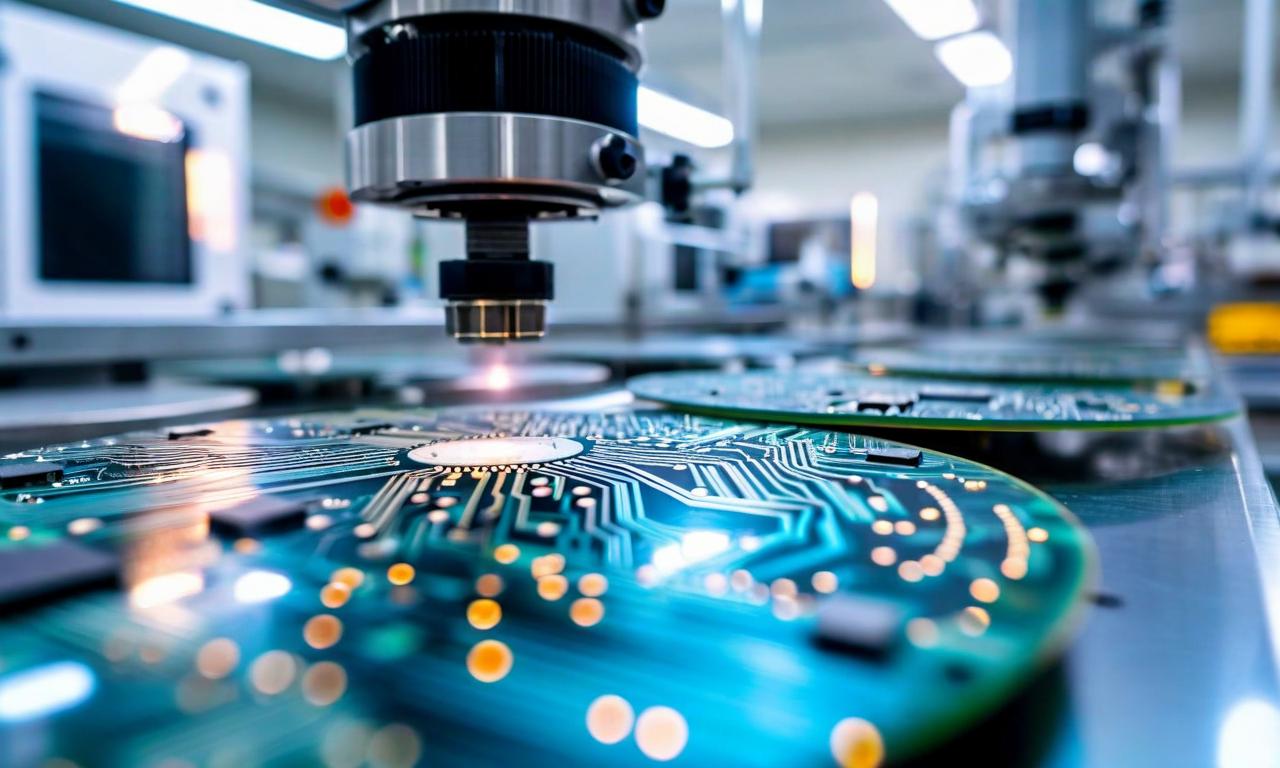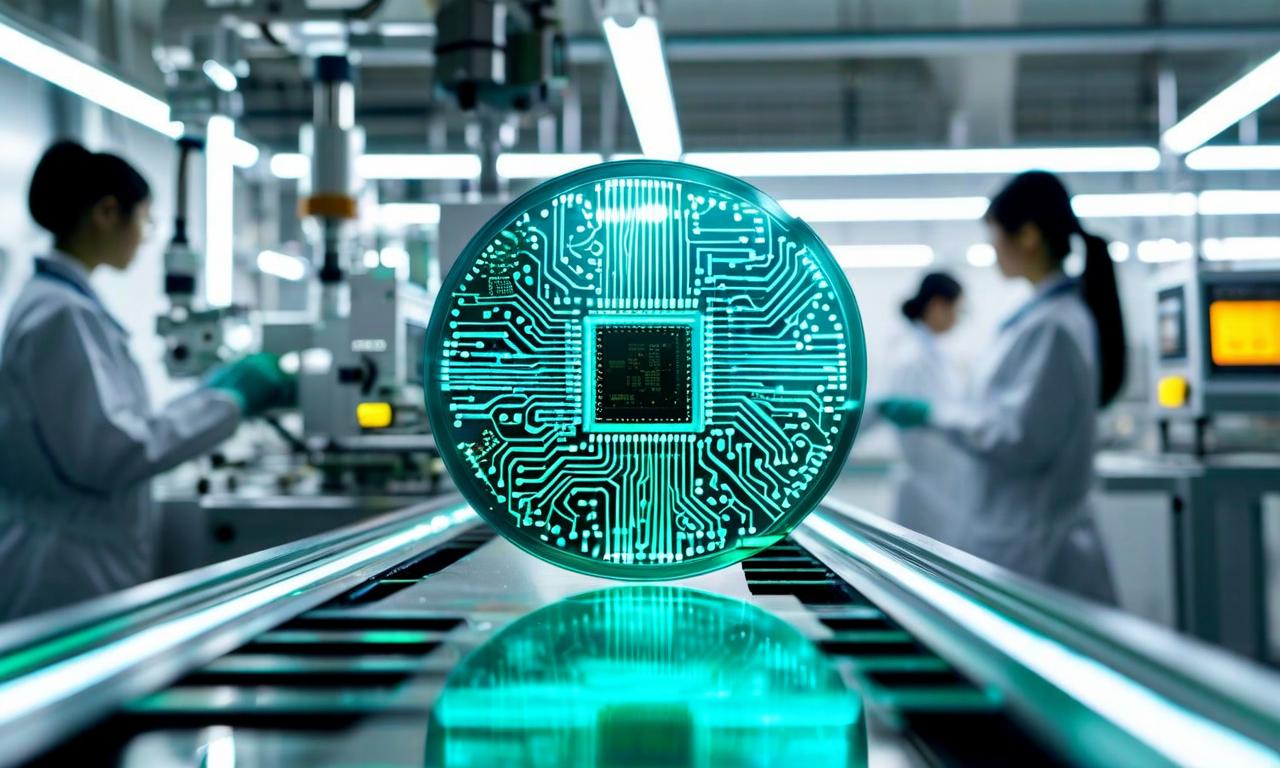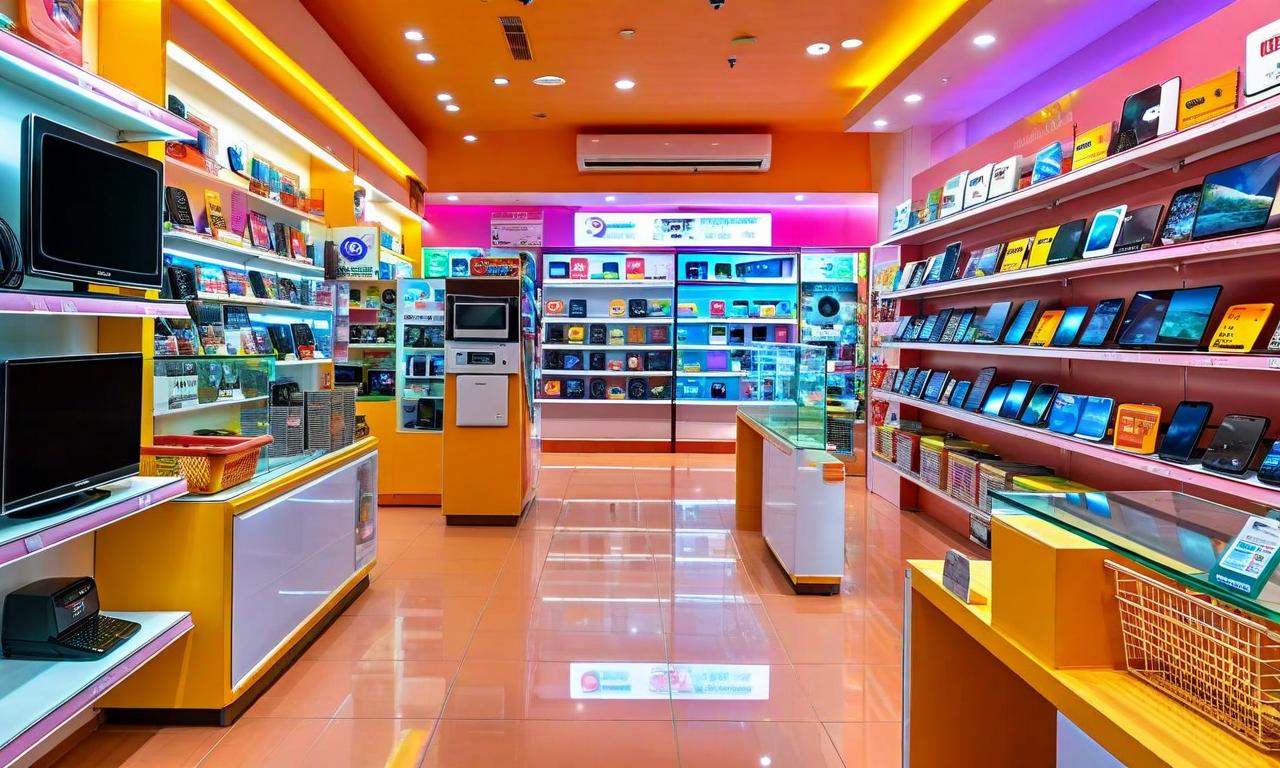Samsung and SK Hynix Shares Tumble as US Revokes China Chip Manufacturing Exemptions
Samsung Electronics and SK Hynix shares dropped sharply following a U.S. government decision to revoke authorizations for chip production equipment in China. Samsung's stock fell 2.30% while SK Hynix declined 4.40%. The policy change, effective in 120 days, ends exemptions from previous U.S. restrictions on chip-related exports to China. This could significantly impact both companies' operations, with over one-third of Samsung's DRAM output and 30-40% of SK Hynix's DRAM and NAND production based in China. SK Hynix plans to communicate with Korean and U.S. governments to minimize business impact, while Samsung has not commented.

*this image is generated using AI for illustrative purposes only.
Samsung Electronics and SK Hynix, two of South Korea's leading semiconductor manufacturers, saw their shares decline sharply following a significant policy shift by the United States government. The move, which revokes previously granted authorizations, is set to impact the companies' chip production capabilities in China.
Market Reaction
The news triggered a notable sell-off in the South Korean tech sector:
| Company | Share Price Change |
|---|---|
| Samsung Electronics | -2.30% |
| SK Hynix | -4.40% |
| Benchmark KOSPI index | -0.70% |
The semiconductor supply chain also felt the impact:
| Company | Share Price Change |
|---|---|
| Hana Micron | -1.70% |
| Hanmi Semiconductor | -4.40% |
Policy Change Details
The U.S. government has rescinded authorizations that allowed Samsung and SK Hynix to procure American semiconductor manufacturing equipment for their chip plants in China. This decision comes as part of broader U.S. efforts to restrict advanced chip technology exports to China.
Key points of the policy change:
- The revocation takes effect in 120 days
- It ends exemptions that had shielded the companies from previous U.S. restrictions on chip-related exports to China
Impact on Production
The policy change could significantly affect both companies' operations:
- Analysts estimate that over one-third of Samsung's DRAM output comes from China
- For SK Hynix, approximately 30-40% of its DRAM and NAND production is based in China
Company Responses
- SK Hynix stated it would maintain communication with both Korean and U.S. governments to minimize the impact on its business operations
- Samsung Electronics has declined to comment on the situation
The development marks a critical juncture for the global semiconductor industry, highlighting the ongoing tensions between the U.S. and China in the high-tech sector. As the 120-day countdown begins, the industry will be closely watching how these South Korean tech giants navigate the new restrictions and adjust their global production strategies.

























